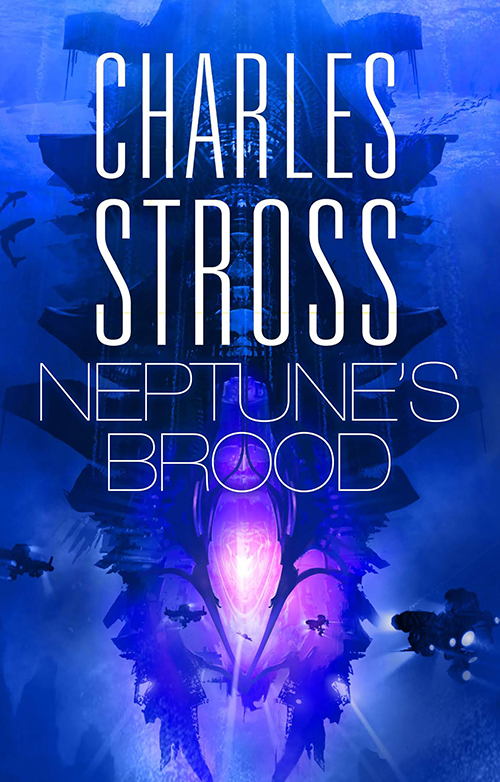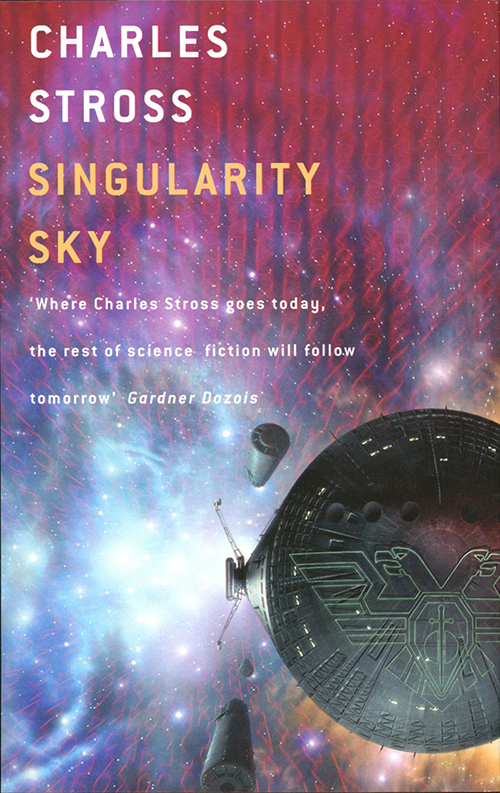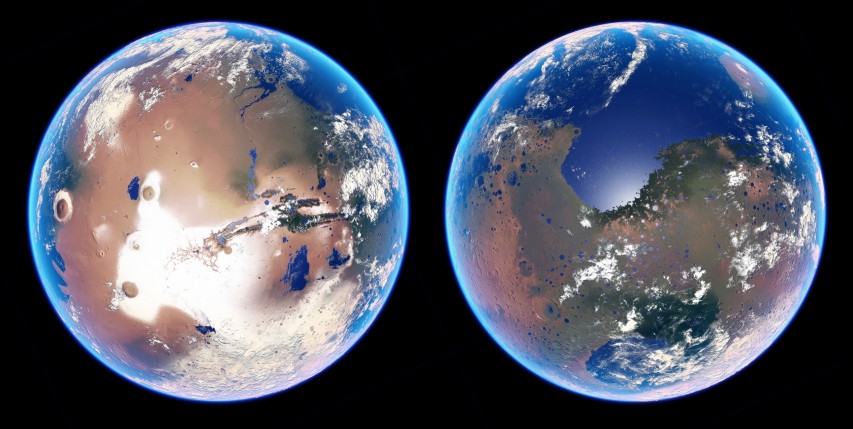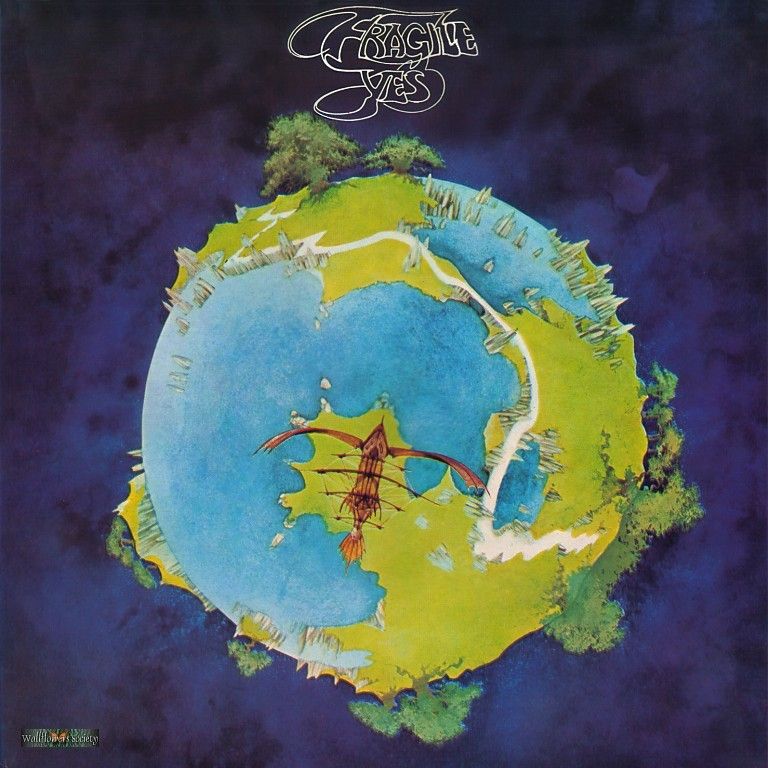I’ve recently finished Charles Stross’ Freyaverse series: the novel Saturn’s Children (2008), the short story Bit Rot (2010), and the novel Neptune’s Brood (2013). The books had been on my to-read pile for a while because I’ve enjoyed his other space operas, especially Glasshouse.
This cover for the UK edition was painted by Fred Gambino.
The premise of Saturn’s Children is fantastic. It’s set in a future where humanity has created colonies across the solar system, but has since died out, leaving our artificially intelligent robotic creations to carry on a post-human civilization without us. One important conceptual detail is that even though these are manufactured beings, their brains are basically the same as ours: human engineers couldn’t figure out how to create general artificial intelligence from scratch, so they built artificial emulations of human brains.
One could imagine a sort of Bechdel Test for SF books about robots: do two artificial intelligences talk to each other about something other than humans? These books would easily pass, although they’re still ultimately about humans: our foibles and narcissisms are on center stage.




